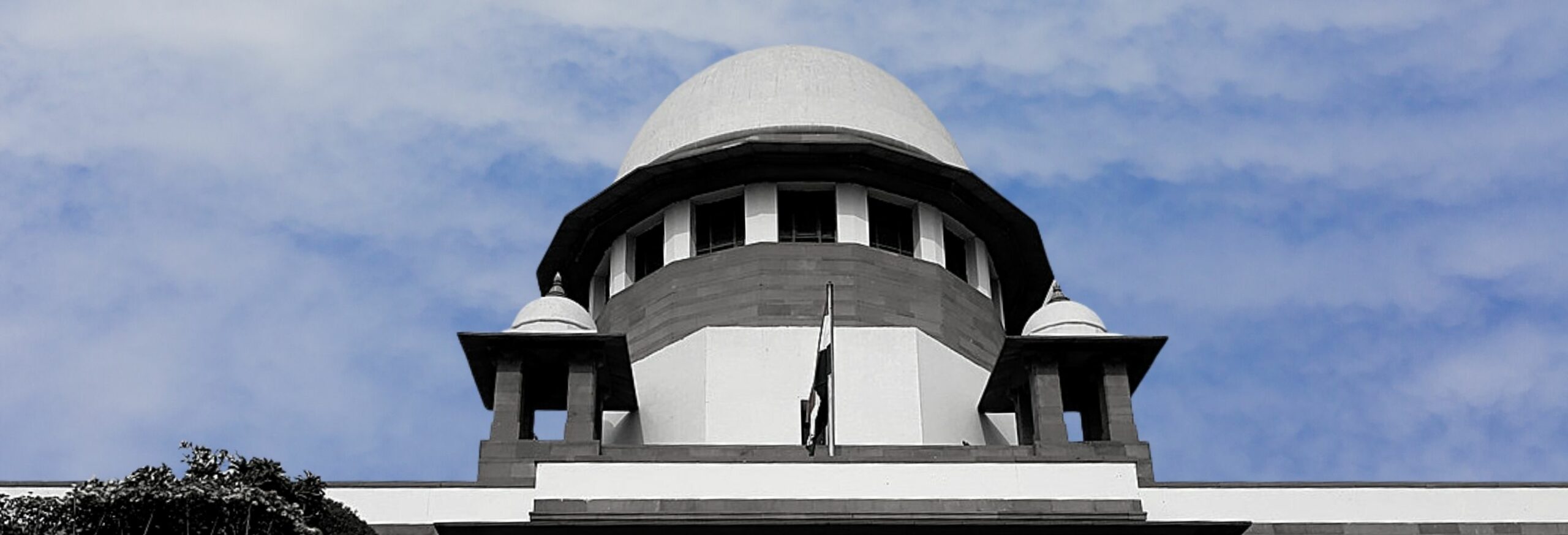Analysis
Supreme Court Asks Centre To Reply On Recognising Same Sex Marriage
Two gay couples argue that they are deprived of many rights since same sex marriage is not recognised in India

On November 25th, a Bench comprising Chief Justice D.Y. Chandrachud and Justice Hima Kohli issued notice in a Public Interest Litigation seeking recognition of same sex marriage. They also transferred nearly 10 petitions pending in the Delhi and Kerala High Courts to the Supreme Court, as they concern similar challenges of constitutionality.
Supriyo Chakraborty and Abhay Dang, a couple from Hyderabad have been together since 2012. They approached the Supreme Court on November 14th 2022, stating that non-recognition of same-sex marriage in law has deprived them of rights and benefits enjoyed by married persons. In the petition they stated that they own a home together, have embraced each other’s families, and last year, even conducted a wedding ceremony. Yet, they cannot enjoy the benefits of being legally married.
Deprived of Rights Extended to Legally Married Persons
Chakraborty and Dang argue that people who enjoy legal recognition of marriage can adopt children, opt for surrogacy, or access Assisted Reproductive Technology. Married persons fall under the category of ‘near relatives’ who are permitted to make crucial decisions about a person’s health and body. This includes a deceased spouse’ organ donation, or donation of organs to each other.
Married couples enjoy the right to consortium (right of companionship, support and cooperation from the spouse). Further, they may exercise the right to inheritance and maintenance.
Chakraborty and Dang further argue that couples like them cannot enjoy tax, employment and retirement benefits awarded to legally married persons.
Above all, they argue that marriage grants a sense of social legitimacy to a couple. Excluding same-sex couples from being socially recognised as partners violates the right to equality. It imposes a distinct added burden on same-sex couples to function and integrate into society.
The connected petition by Parth Phiroze Mehrotra states that he has been in a relationship with his partner for seventeen years. The petition states that they are presently raising two children together, however they cannot legally solemnise their marriage which has resulted in a situation where both Petitioners cannot have a legal relationship of parent and child with their children. According to the petition, the children have the legal relationship of a child with one partner while the other partner has no legally recognised relationship. Such a circumstance causes immense anguish and significant practical problems in raising the children.
According to the petition, they would not face such difficulties if they are enabled to enjoy access to the civil institution of marriage as a same sex couple. The petition alleges that the denial of the fundamental right of marriage to same sex couples is a complete violation of constitutional law.
What do They Seek From the Supreme Court?
Supriyo’s petition asks the Supreme Court to declare that the Special Marriage Act, 1954 must apply to a marriage between two persons, irrespective of their gender identity and sexual orientation.
Mehrotra’s petition seeks directions from the Supreme Court to enforce the fundamental right of LGBTQ+ individuals to marry any person of their choice. The petition also asks the Court to declare Section 4(c) of the Special Marriage Act, 1954. , which recognizes solemnization only if the marriage is between a ‘male’ and ‘female’, as unconstitutional. The petition alternatively asks to court to modify the Section in order to make it applicable to all persons regardless of sex.
The petition has invoked the Fundamental Rights enshrined under Part III of the Constitution of India, including Articles 14, 15, 19(1)(a), and 21 and has sought that the Special Marriage Act, 1954 be interpreted in a manner which is neutral to gender identity and sexual orientation.
What Was Argued In The Court?
Senior Advocates Mukul Rohatgi, Neeraj Kishan Kaul and Menaka Guruswamy appeared for the petitioners.
Senior Advocate Mukul Rohatgi submitted that the issue is an extension of Supreme Court’s judgment in Navtej Singh Johar (2018) , which decriminalised homosexuality. Mr. Rohatgi stated that the issue of same sex marriage is a living issue, which will have an impact on the health of families and issues of succession.
Senior Advocate Neeraj Kishan Kaul argued that same sex couples are deprived of basic rights such as gratuity, adoption, surrogacy and even opening of joint accounts.
On hearing the counsels, the Bench also consisting of Justice Hima Kohli issued notice to the Central government and the Attorney General
